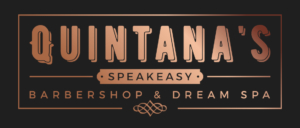Quintana’s Guide to Retinoids
What are Retinoids?
By: Noelle Janda
“Retinoid” is an umbrella term for all vitamin A-derived products. These products are used to treat a multitude of skin concerns and range from prescription strength to over-the-counter retinols that are available at spas, beauty & drug stores. We will go over different forms, their benefits, how to use them, and if they may be right for you!
With all the different terminology on the market, it can be a little confusing figuring out which retinoid you should try if at all. There are different chemical forms of retinoids. Some are better suited for different skin concerns. A good way to think about it is by separating them into two categories: prescription strength and over-the-counter. Prescription strength retinoids are more potent forms of vitamin A, only available through a doctor, and typically used to treat severe skin issues. You will find over-the-counter options at drug stores, beauty stores, spas.
Prescription-Only Retinoids
- Isotretinoin or Accutane: most commonly prescribed for severe, cystic acne as an oral medication. This is the strongest form of a retinoid.
- Tretinoin, Retin-A, or Renova: Great for acne, pigmentation issues, and anti-aging.
- Adapalene: Treats various types of acne.
- Tazarotene or Tazorac: Treats psoriasis and severe acne.
OTC Retinoids
- Retinol: Considered the gold standard ingredient in skin care products, retinol is efficient at addressing signs of aging, boosting collagen, elastin, and much more. You’ll see a lot of retinol products at beauty and drug stores. Retinol is not as potent as Retin-A for example, but is less irritating.
- Retinal/Retinaldehydes: A newer retinoid to hit the market. Similar to retinol, but slightly stronger.
- Adapalene: Great for treating acne. This was originally prescription-only but has been made available at most drug stores in recent years. Some brands include Differin and La Roche Posay Effaclar gel.
Benefits
While originally formulated as an acne treatment in the 70’s, decades of research have shown retinoids provide many benefits to the skin:
- Smooths fine lines, wrinkles, and rough texture: Our skin naturally produces new skin cells, roughly on a monthly basis. As we get older, it takes our skin longer to make new cells. Retinoids are designed to speed up that process. Thus, revealing smoother skin and fewer wrinkles.
- Fades uneven pigmentation and acne scarring: The increased skin cell production helps fade uneven skin pigmentation. Retinoids are also tyrosinase-inhibitors, meaning they slow the production of melanin, making it less likely for your skin to create dark marks or hyperpigmentation.
- Firm sagging skin: Retinoids also stimulate increased collagen and elastin production. This helps with firming and tightening.
- Acne: As mentioned earlier, retinoids help regulate sebum production, soothe inflammation, unclog pores and keep them clear.
How to use Retinoids:
Keep in mind that retinoids can cause some dryness and irritation when first introduced to the skin due to the faster turnover of skin cells. Understanding how to use retinoids properly is key to avoiding excessive irritation and achieving successful results.
- Start slow! Allow your skin time to adjust. Follow the “1 2 3” rule first: Apply it once a week for one week, twice a week for two weeks, followed by three times a week for 3 weeks. If you aren’t experiencing irritation and flaking at this point, move on to using it every other night. If you do start to experience irritation, just adjust to a lesser frequency for one week and repeat. Everyone’s skin is different and what works for someone else may not work for you. Some people can tolerate retinoids daily while others have greater results with 2-3 times per week instead. Use the “1 2 3” approach to figure out what works best for you.
- SPF: Retinoids make your skin much more sensitive to the sun and more prone to sun damage. Although we should be using spf regardless, it is especially imperative to your skin’s success when using retinoids. Otherwise, you risk leaving your skin in an even more damaged condition. This can lead to worsening pigmentation issues, scarring, wrinkles etc. Using an SPF 30 or higher in the morning will provide ample sun protection.
- A little goes a long way: Don’t be heavy handed when applying retinoids. Generally, a pea-size amount will be enough to spread a thin layer over the entire face, or a little bit more to also cover the neck and decollete. This amount will be just as effective and less likely to cause irritation.
- Use in the evening: Retinoids can be unstable and break down in the sun. For this reason, only apply in the evening.
- Apply to clean, dry skin: Applying to wet skin can cause irritation. Wait at least 30 minutes after washing your face and applying any serum/moisturizer to use. Avoid the eyelid and under eye area because this skin is very thin and sensitive.
- Consider starting with retinol: If you haven’t used retinoids before, retinol is a good starting point for your skin and will be less likely to cause irritation. We recommend the Image Total Retinol-A Creme. This product is also formulated with glycolic and lactic acid to reverse signs of aging and revitalize the appearance of dull skin. An advanced peptide complex actively fights the appearance of wrinkles and improves uneven tone. This product is available for purchase in our spa!

- Keep your skin hydrated: Properly moisturizing your skin is necessary to reduce irritation. Check out this article for extra tips on keeping skin hydrated.
Warnings & Contraindications
- DO NOT use any retinoid while pregnant, nursing, or trying to become pregnant. They may cause unsafe levels of vitamin A in the body during pregnancy.
- Proceed with caution if you have eczema, rosacea, dry or sensitive skin. Because retinoids can cause flaking and irritation, it may worsen existing conditions.
- Always consult with your dermatologist if you aren’t sure about adding a retinoid to your routine.
- Discontinue use before heavier exfoliating treatments such as chemical peels, dermaplaning, and microdermabrasion. To be on the safer side, stop using retinoids 5-7 days before and after these kinds of treatments. If you are planning to get a traditional facial, discontinuing for 2-3 days before should be enough time.


